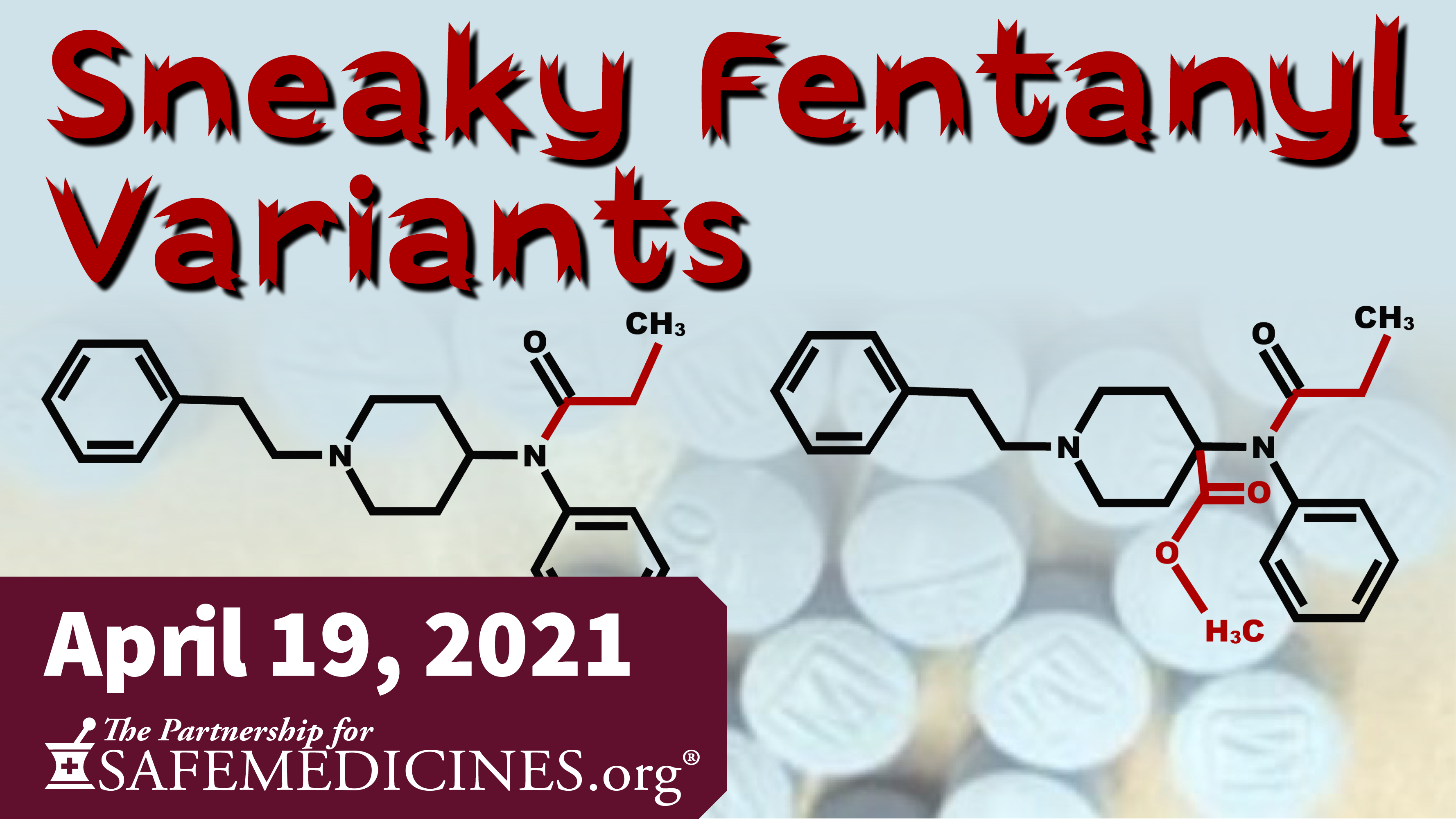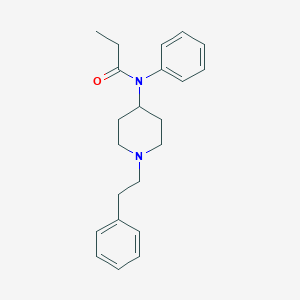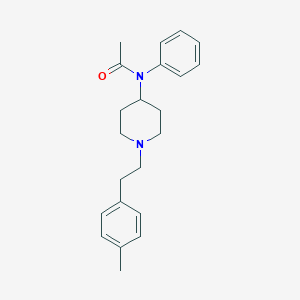What is "permanently scheduling" fentanyl-related substances and analogues, and why is it so important?
Fentanyl is an opioid pain medication used in healthcare that is a Schedule II controlled substance. Because it is easy to synthesize, it has become a highly trafficked drug during the opioid crisis. Since at least 2015, criminals have been making fake pills with fentanyl that have cost an enormous number of lives. Rogue chemists that supply fentanyl evade law enforcement by making tiny changes to fentanyl molecules to come up with versions that aren't scheduled as controlled substances. (Controlled substances are defined by their molecular structure.) These variations are called “fentanyl analogues” or “fentanyl related substances” (FRS).

Watch our 2-minute video about scheduling fentanyl analogues.
As fentanyl analogues became popular with criminals, the DEA asked Congress to temporarily schedule all of them as controlled substances also. That temporary scheduling ends on December 31, 2022. If it expires, law enforcement and public health experts will be caught in a cat-and-mouse game with criminals: criminal chemists are looking for new, unscheduled analogues so they can continue to sell their substances with less fear of prosecution.
In advance of the December 31, 2022 expiration, the White House Office of National Drug Control Policy (ONDCP) presented a proposal to permanently schedule all fentanyl analogues as Schedule I while addressing the competing needs of medical researchers, the issue of descheduling fentanyl analogues that do not function as opioids, and the inequities of weight-based trafficking penalties.
We at the Partnership for Safe Medicines stand with our law enforcement partners, family advocates, and legislators in their efforts to ensure prosecution of criminals dealing these substances while preserving access of medical and scientific researchers to these substances. We believe that permanently scheduling fentanyl-related substances and analogues – both specific and broad - is an important and vital policy tool in the fight against fentanyl-laced counterfeit medicines.
Why is medical research access so important?
Opioid reversal drugs like naloxone cannot be created and tested without access to the actual fentanyl products themselves to test them on. PSM strongly believes that we should do everything possible to encourage research around fentanyl and it's analogues. Therefore any proposal to preserve research access to these chemicals is paramount.
How does the ONDCP propose to address permanent class-wide fentanyl scheduling?
To balance the competing interests of law enforcement, medical research, and advocates for criminal justice reform, the ONDCP suggests:
- Permanently placing all fentanyl analogues in Schedule I.
- Removing mandatory minimum penalties based on the quantity of fentanyl analogues trafficked. (Minimums would still apply in cases that involve prior convictions, death, or serious bodily harm.)
- Streamlining a process for the Department of Health and Human Services (HHS) to deschedule analogues that have no opioid effect.
- Ensuring that federal courts can vacate or reduce sentences of individuals prosecuted for analogues that are later descheduled.
- Creating a simplified process for medical researchers to obtain permission to work with Schedule I substances, including fentanyl analogues.
- Analyzing the effectiveness of classwide scheduling.
Questions and Answers About the Proposal
Why are fake prescription drugs made with fentanyl an issue?
Counterfeit drugs made with fentanyl are a significant issue throughout the United States and continue to be a leading, lethal contributor to the opioid epidemic plaguing our country. Preliminary data from the CDC for 2020 shows that drug deaths in the U.S. surged to 93,331 in 2020, the most recorded in any year – a 30% rise in overdose deaths from 2019, primarily driven by the prevalence of opioids, fentanyl, and fentanyl-related substances.
What you can do
We're collecting letters from all 50 states for the US Senate from families affected by fentanyl. Please contact us to help write a letter to your senators to ask them permanently schedule fentanyl analogs.
We're currently working with families in the states shown on the map to the right. While we're looking for letters from families in all 50 states, if your state is not yellow or green above, please reach out to us.
Take a moment and read this example letter sent by Andrea Thomas, mother of Ashley Romero. Andrea allowed us to share her letter to encourage others to do the same.
On this map green states mean we have a family advocate letter in process or complete. Yellow means we have a family we are working with, but no letter completed yet. Email us at editors@safemedicines.org to learn how you can send a letter to your Senators that will make a difference.
What is a fentanyl-related substance or analogue?
Think of it as Legos or building blocks.
Fentanyl has the chemical building structure C22H28N2O.
A fentanyl analogue moves some of those structures around. Here, for example, is one of the fentanyl analogues the DEA has proposed to permanently schedule: C22H28N2O.
It’s hard to spot the difference, isn’t it? You might also notice that it contains the exact same building blocks, just arranged differently. But because of scheduling, there is a big difference here for criminals. Fentanyl is a controlled substance. Manufacturing, distributing, or selling it is illegal and punishable by significant jail sentences. But doing the same with an analogue that’s not scheduled is not. Until it is scheduled, criminals can stack these chemical building blocks to create a new fentanyl analogue. Chemically-speaking, a new analogue is a new substance that has not yet been scheduled. It isn’t controlled or illegal (yet), but it has the same effects as fentanyl, and it is still highly dangerous.
What is Scheduling?
The United States and the DEA control dangerous substances and illicit drugs using the Controlled Substances Act, which empowers the DEA to put each drug into a classification, known as a schedule, based on its medical value and potential for abuse. Fentanyl is a Schedule II drug: It has a high potential for abuse, but has some medical value. Other fentanyl analogues have high potential for abuse and provide no medical value. Law enforcement can only prosecute illegal behaviors around a substance if it is scheduled.
Once the DEA identifies a substance as an issue, they establish the potential for abuse and seek a waiver from the Department of Health and Human Services (HHS) to verify that there is no medical use for the substance. The substance is then either temporarily or permanently scheduled. It is important to note that the DEA can only schedule exact chemical substances, so they need to schedule each analogue, each variation that criminals create, which creates "whack-a-mole" issue for law enforcement.
So scheduling helps prosecute criminals?
That’s correct. Scheduling allows for law enforcement to prosecute the manufacturing, distribution or sale of a scheduled controlled substance. That’s why it is important to permanently schedule them, as DEA has done, so scheduling doesn't lapse, and criminals can just start using them again without risk of punishment. And that is why it is also important to more broadly schedule fentanyl-analogues, as a few pieces of bipartisan legislation propose to do. The proposed legislative measures say that if you use the same building blocks of illegal fentanyl-related substances and analogues, it is always illegal not matter how you re-arrange the building blocks. A simple yet elegant solution to a complex problem that eliminates the whack-a-mole problem for law enforcement to chase ever evolving analogues.
What does that all mean?
Fentanyl-related substances and analogues are built the exact same way. Criminals manufacturing these deadly substances are just moving the chemical pieces of fentanyl around to evade criminal prosecution. That is why PSM supports – and will continue to support – law enforcement and legislators in their efforts to permanently schedule fentanyl-related substances and analogues as Schedule II controlled substances.
We must not give up the fight against these criminals and work hard to protect our communities against the opioid epidemic by keeping deadly fentanyl and fentanyl-related analogues out of our communities.
Isn't there already a way to convict someone for selling analogues of scheduled drugs?
The Federal Analogues Act describes a legal process by which you can bring experts into court to demonstrate that an analogue is equivalent to a controlled substance for the purpose of prosecution.
While the Analogues Act has been successfully used to prosecute individuals selling analogues of controlled substances, it makes the entire law enforcement and prosecution process more complex. There will certainly be situations where prosecutors will hesitate to bring cases because if they are the first ones to have to convince a court that a new fentanyl analogue is the same as fentanyl.
The ONDCP’s proposal to allow descheduling of fentanyl analogs that do not behave like opioids provides the ability for law enforcement to bring cases. At the same time, advocates of descheduling will have a formal pathway to remove substances from the schedule.

